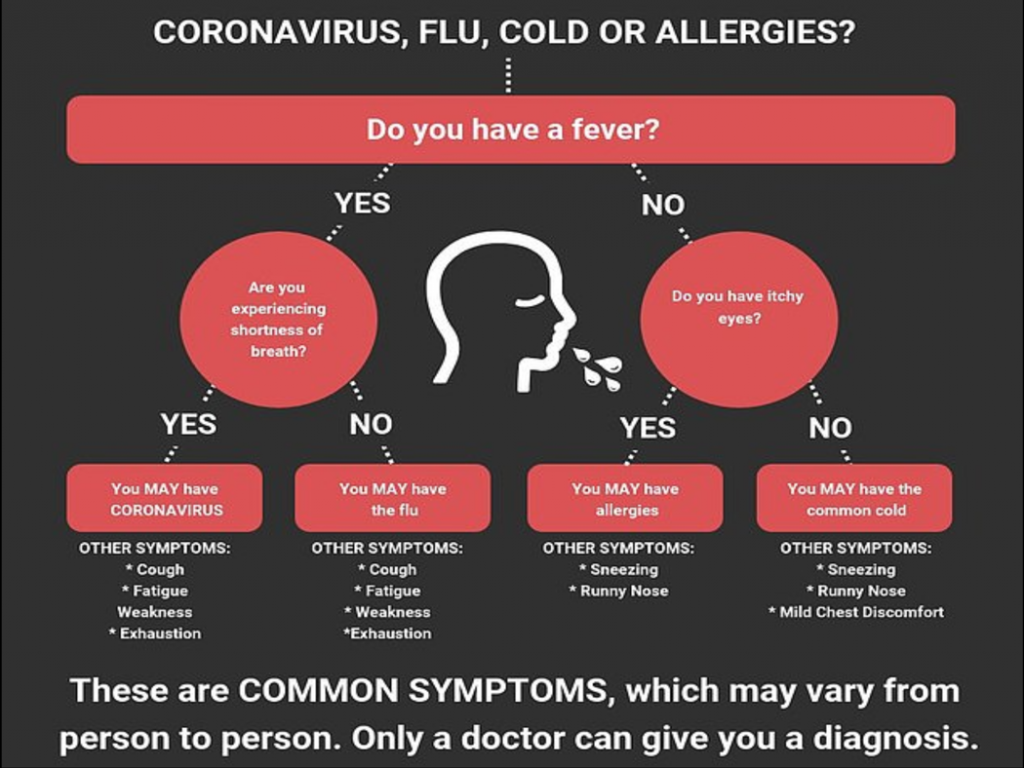Protecting Yourself from Coronavirus
At RMD Primary Care, the health and well being of our patients and staff is of utmost importance to us. We especially want our patients to be aware of the best practices to safeguard their health and their families against the spread of Coronavirus (COVID-19). This includes measures to protect themselves from contracting the virus as well as what to do if you are experiencing any of its symptoms.
We strongly recommend following the guidelines outlined by the Centers for Disease Control and Prevention (CDC). Since there is not yet a vaccine for the Coronavirus, it is important to be proactive in protecting ourselves. These measures will help prevent the spread of Coronavirus and other respiratory illnesses, including influenza, in our community. The following information comes directly from the CDC’s website, www.cdc.gov.
How to protect yourself
- Wash your hands often with soap and water for 20 seconds, especially after having been in a public place and after sneezing, coughing, or blowing your nose. Do not touch your face, eyes, nose, and mouth with unwashed hands. If soap and water are not available, clean your hands with a hand sanitizer that contains at least 60% alcohol.
- Avoid close contact with people who are sick. This is especially important for older adults and people with serious chronic medical conditions like heart disease, diabetes, and lung disease. Avoid crowds as much as possible and stay home to reduce the risk of being exposed.
- Avoid all non-essential travel.
Supplies to have on hand
- Any prescription medications that you may need.
- Over-the-counter medications and supplies (tissues) to treat fever and other symptoms
- Have enough groceries and household items so that you can isolate at home if infected. Stock up on non-perishable foods and limit trips to the store.
Watch for symptoms
These symptoms may appear 2-14 days after exposure to Coronavirus.
- Fever
- Coughing
- Shortness of breath
Emergency warning signs for COVID-19 include:
- Difficulty breathing or shortness of breath
- Persistent pain or pressure in the chest
- New confusion or inability to arouse
- Bluish lips or face
What to do if you are sick
- Call your doctor for advice if you develop symptoms of COVID-19. Do not go to the doctor’s office without calling first.
- Isolate at home to keep from spreading the virus to others. Separate yourself from other people and pets in the household.
- Use a separate bedroom and bathroom if possible.
- Cover your mouth and nose with a tissue when coughing or sneezing. Dispose of tissues in a lined trash can. Wash hands immediately with soap and water for 20 seconds.
- Avoid sharing personal household items.
- Clean and disinfect all high-touch surfaces every day. This includes counters, tables, doorknobs, bathroom fixtures, toilets, phones, keyboards, tablets, and bedside tables.
- Wash laundry and bedding thoroughly.
Persons with confirmed COVID-19 should continue to isolate at home until instructed by their healthcare professional to discontinue.





